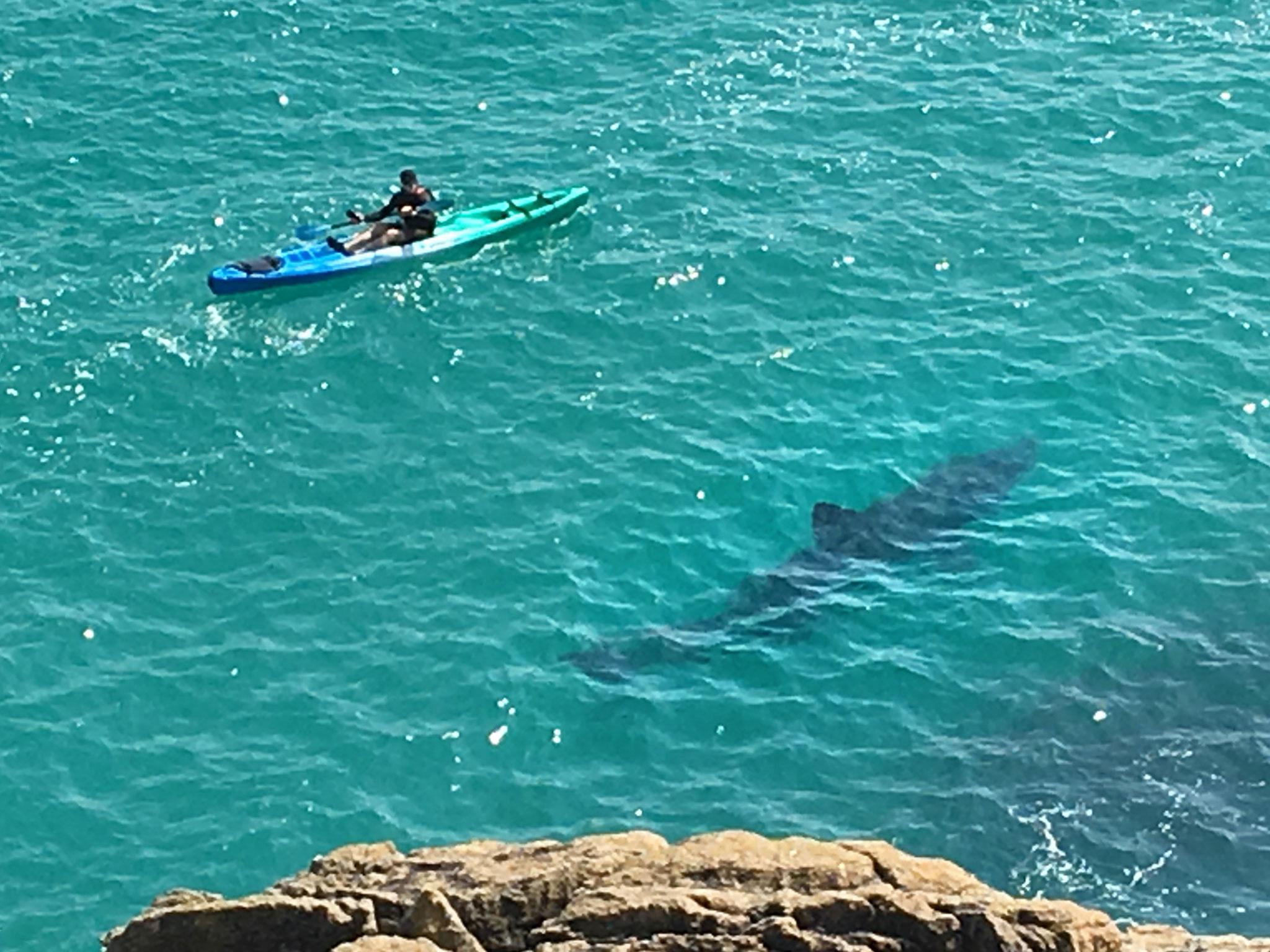Close encounter between shark and kayaker seen off Cornish coast
Just when you thought it was safe to go back on the water...

Your support helps us to tell the story
From reproductive rights to climate change to Big Tech, The Independent is on the ground when the story is developing. Whether it's investigating the financials of Elon Musk's pro-Trump PAC or producing our latest documentary, 'The A Word', which shines a light on the American women fighting for reproductive rights, we know how important it is to parse out the facts from the messaging.
At such a critical moment in US history, we need reporters on the ground. Your donation allows us to keep sending journalists to speak to both sides of the story.
The Independent is trusted by Americans across the entire political spectrum. And unlike many other quality news outlets, we choose not to lock Americans out of our reporting and analysis with paywalls. We believe quality journalism should be available to everyone, paid for by those who can afford it.
Your support makes all the difference.A close encounter between a kayaker and a shark off the coast of Cornwall has been caught on camera.
The enormous basking shark was one of two spotted near the small coastal village of Porthcurno.
Basking sharks are sometimes mistaken for great white sharks and have jaws up to a metre wide, but they are actually filter feeders that are harmless to humans.

Photographs show a kayaker floating only feet away from the giant fish, seemingly oblivious to the animal swimming beneath.
Basking sharks use more than 5,000 gill rakers to filter plankton from around 1.5 million litres of water an hour.
They can grow up to 39 feet (12 metres) long, making it the world’s second largest fish species, behind only whale sharks.
The species are named basking sharks because they are frequently seen on the surface, scooping up plankton with their giant mouths. But when prey is scarce, they dive up to 3,280 feet (1,000 metres) deep in search of food and stay there for months.
The giant fish travel vast distances in search of food, travelling at only three miles per hour. Little is known about the distribution of basking sharks around the world, but they appear to favour cooler waters and are frequently spotted around the British Isles and the east coast of the US.
Join our commenting forum
Join thought-provoking conversations, follow other Independent readers and see their replies
Comments